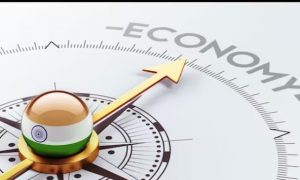Reducing import duties on inputs and capital goods could help the government cut down the need for many of the existing export schemes, think tank GTRI said on Friday.
Read More: ‘Data shared with account aggregators safe’, claims Finance Minister Nirmala Sitharaman
This would be an important step as India continues to face challenges in managing these incentives within the framework of international trade laws, it said.
The Global Trade Research Initiative (GTRI) said that many countries, including major trade partners of India like the European Union (EU) and the US continue to declare Indian schemes as subsidies and “punish” exporters by charging countervailing duties.
America and the EU account for over 20 per cent of the country’s total outbound shipments.
At present, India is implementing many schemes to facilitate exports. These include the Advance Authorisation Scheme (AAS), Export Promotion Capital Goods Scheme (EPCGS), Duty Drawback Scheme (DDS), the Remission of Duties and Taxes on Exported Products (RoDTEP), Special Economic Zones (SEZ), Export Oriented Units (EOUs); Pre-shipment and Post-shipment credits banks, and Interest Equalization scheme (IES).
These schemes aim to enhance Indian products’ competitiveness in the global market.
GTRI Co-Founder Ajay Srivastava said the EU and the US and many others have frequently viewed these schemes as subsidies, and imposed countervailing duties, neutralising the monetary advantages India provides to its exporters.
The primary contention of these countries is that these schemes violate the World Trade Organization’s (WTO) Agreement on Subsidies and Countervailing Measures (ASCM).
“Faced with these challenges, the Indian government needs a multi-pronged approach and that includes improving the structure of export schemes; actively raising disputes in WTO; resisting premature withdrawals of schemes; and rationalising customs duty structure,” he said.
Currently, India’s average tariff or customs duties for industrial products is 14.7 per cent, compared to the EU’s 4.1 per cent.
Many of India’s export schemes, like SEZ, EOU, RoDTEP, and Drawback, exist because of such high import duties. Exporters use these schemes to either get a refund of duties paid or to be exempt from paying import duties.
“Reducing import duties on inputs and capital goods could lessen the need for many of these export schemes,” it said.
It also suggested that to comply with global trade rules, India can make several improvements in export schemes, like in the AAS a robust system needs to be put in place to trace raw materials and ensure their actual use in production.
In EPCGS, there is a need to reduce import duties on select capital goods, complemented by low GST rates.
“In RoDTEP, regular checks based on actual inputs should be conducted to ensure compliance with WTO rules and prevent excess payments. India also needs to actively raise disputes against them (the EU and the US) to counter or later bargain. Doing this competently would require a professional setup akin to the US Trade Representative and a robust panel of experts. Current setup lacks depth,” Srivastava said.
He added that the government’s decision to terminate MEIS (Merchandise Export from India scheme) might have been influenced by the desire to redirect funds to the PLI (Production Linked Incentive) scheme.
“With less than 5 per cent of PLI funds (Rs 1.97 lakh crore) utilised in three years, most of the budget remains unused. Also the PLI benefits less than 500 firms or 1 per cent of MEIS’ 50,000 users,” he said.
“The Indian government needs a multi-pronged approach to align export schemes with global trade rules, including refining subsidy calculations and enhancing compliance checks. The road ahead requires a balanced approach, harmonizing domestic economic interests with global trade obligations,” he said.



































